Did you know that around 50% of the population considers themselves to have sensitive skin? Unfortunately, even though this may indicate how common the problem is, there’s so much confusion surrounding those sensitivities. This means that many often take the incorrect approach to dealing with their skin, which only makes things worse.
So, today, Celestolite is going to help clear things up. Read on as we share a comprehensive guide to sensitive skin – one that will help you to understand why your skin is so reactive along with what you can do to keep your complexion calm and happy.
What Exactly is Sensitive Skin?
Chances are that at some point or another, your skin has reacted to something. Whether triggered by a plant, a skincare product, chemicals in the air, or anything else, just about everyone has experienced sensitivities to a certain extent. Usually, these subside on their own and the skin soon goes back to normal.
However, those with sensitive skin experience those sensitivities over a much longer period of time. It can usually be explained by a compromised skin barrier. Rather than keeping irritants and allergens out, they pass on through that protective layer, where they then trigger inflammation. This tends to manifest as:
- Skin that looks red or swollen
- Itching
- A stinging/burning sensation in the skin
- Dryness, with the skin often cracking and bleeding
- Hives or rashes
Managing Sensitive Skin
There’s no denying that having sensitive skin can be downright uncomfortable. However, rather than miserably suffering through it, there are steps that you can take to soothe your complexion and restore it to a healthy-looking state:
Keep Your Skincare Routine Simple
Since your skin easily reacts to allergens and irritants, it only makes sense to prevent those from coming into contact with your skin as much as possible. This means keeping your skincare routine simple and basic. After all, the more products you use, the more ingredients you’ll be exposing your skin to and the higher your chances of experiencing a reaction.
What does a basic skincare routine consist of?
There are only three steps that you need to follow; cleansing, moisturizing, and SPF. Once you’ve found products that don’t cause your skin to react, you could then consider adding in some extras, like serums and face masks.
Say No to Foaming Formulas
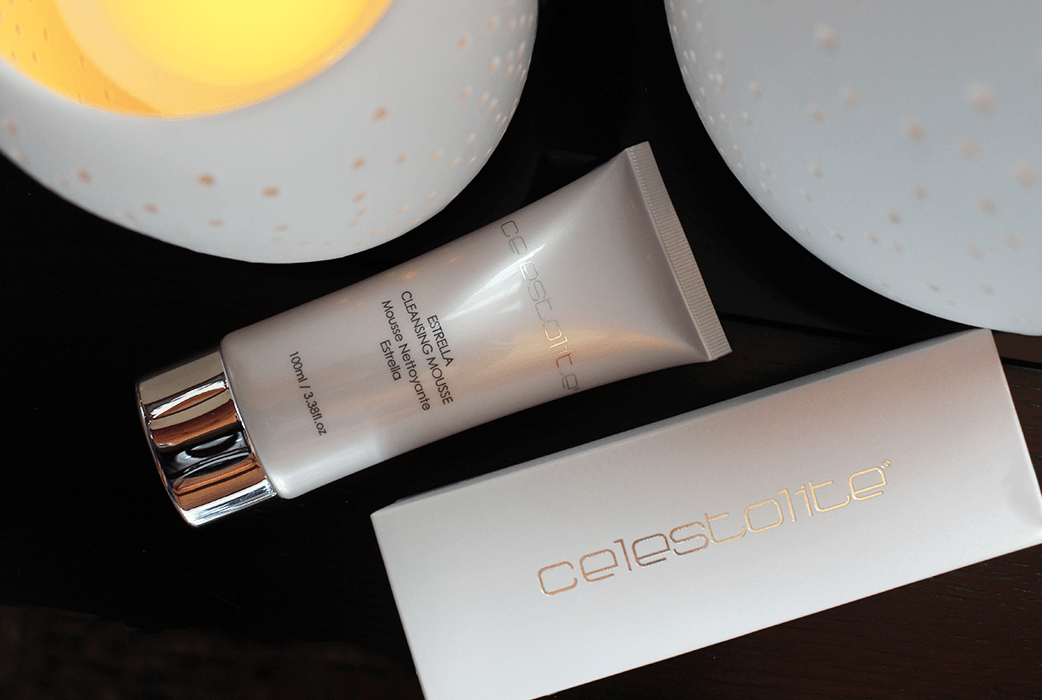
Since your skin barrier is already compromised, you need to protect it from further harm. The more damage it undergoes, the more sensitive your skin will be.
Unfortunately, often, the very first step of your skincare routine can be surprisingly detrimental. As essential as cleansing may be, many of the cleansers out there contain harsh surfactants that not only clear away dirt but also remove parts of the skin’s natural barrier.
The best way to avoid this is by staying away from foaming cleansers, or any other formula that contains sulfates. These surfactants are notorious for stripping away the skin barrier. Fortunately, there are many other alternative ingredients that are just as effective without being damaging. You’ll find some of them in the Celestolite Estrella Cleanser Mousse. With coconut-derived cleansing agents, it will leave your skin feeling refreshed rather than irritated.
Don’t Over-Wash or Over-Exfoliate Your Skin
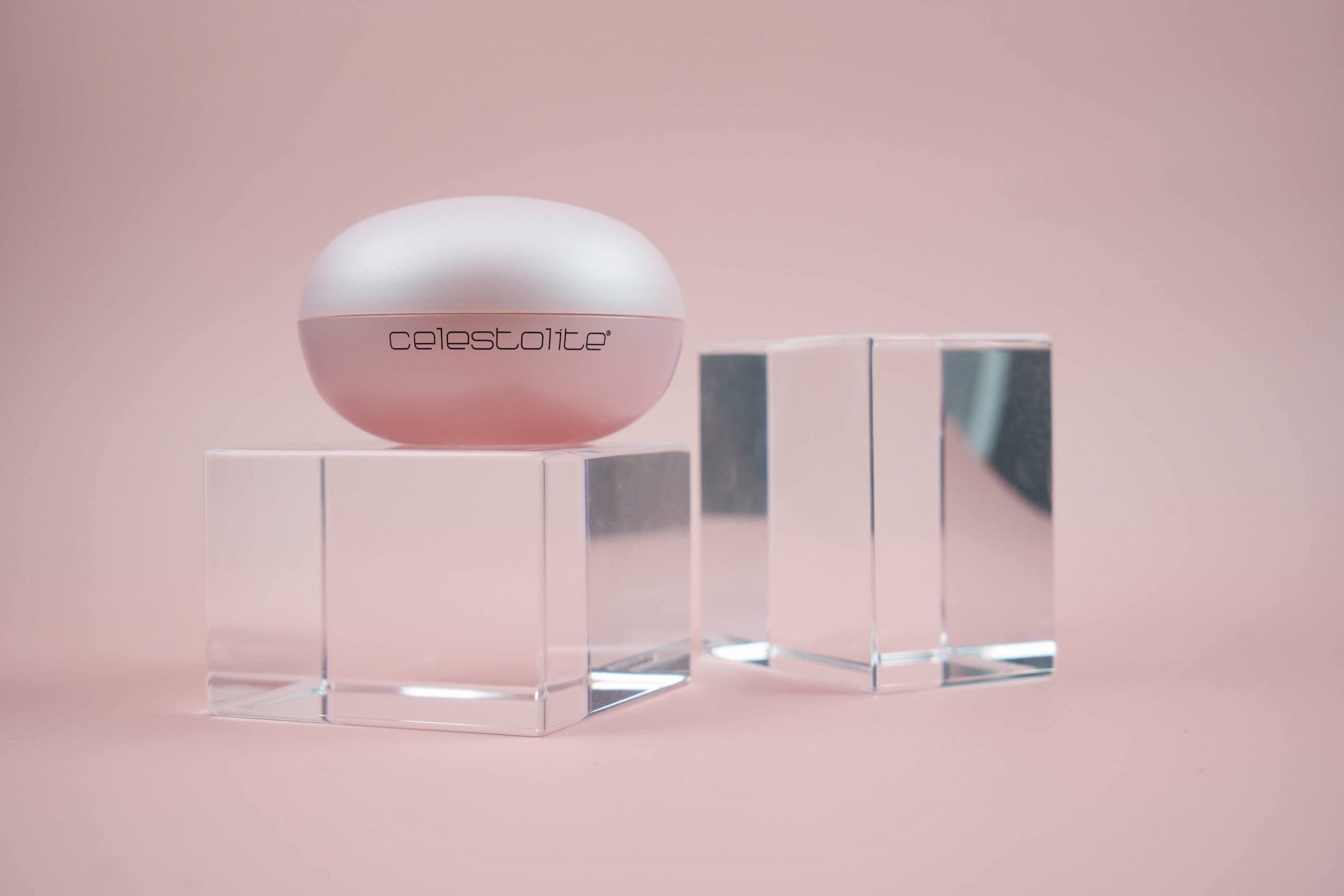
It’s so important to keep sensitive skin clean. Allow any impurities to linger on your skin’s surface and it won’t be long before they cause a reaction. Regularly exfoliating is crucial too in order to prevent irritants from settling in your pores.
At the same time, cleanse or exfoliate your skin too much and you’ll only damage your skin barrier. With your skin barrier already being impaired, this will only leave your skin even more sensitive.
How often you cleanse should depend on how sensitive your skin is, but a minimum of once a day and a maximum of twice is a good guideline to go by. Exfoliation should only be carried out once a week or so. Use a gentle exfoliator for this, like the Celestolite Estrella Facial Peel.
Focus on Hydration
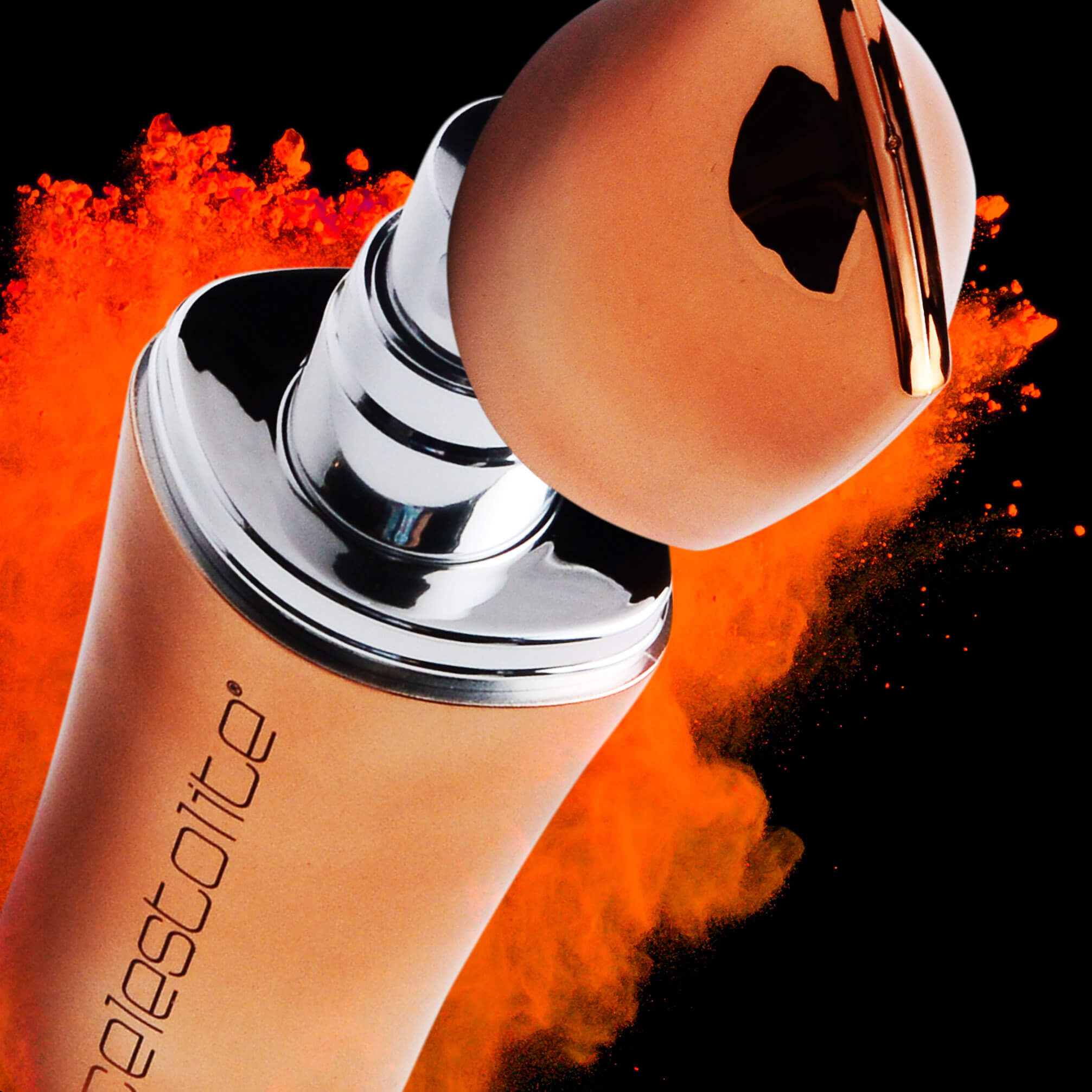
Dehydration is something else that makes sensitive skin worse. Unfortunately, a compromised skin barrier leaves you more prone to dehydration. Since your barrier isn’t functioning optimally, it won’t be able to hold in the necessary amount of water that your skin needs. Instead, it will allow a large chunk of that precious moisture to evaporate away.
This is why regularly hydrating sensitive skin is crucial. You’ll need to replace all of that moisture that’s continually being lost. The best way to do this is with humectants – lightweight ingredients that bind moisture to the skin. The Celestolite Mars Stellar Serum contains plenty of them. Sodium hyaluronate, one of the most hydrating humectants around, can be found in this formula, as can glycerin, collagen, and peptides. Speaking of peptides, these ingredients are fantastic for strengthening the feel of the skin barrier – something that sensitive skin really benefits from!
Don’t Allow Your Skin’s Surface to Dry Out
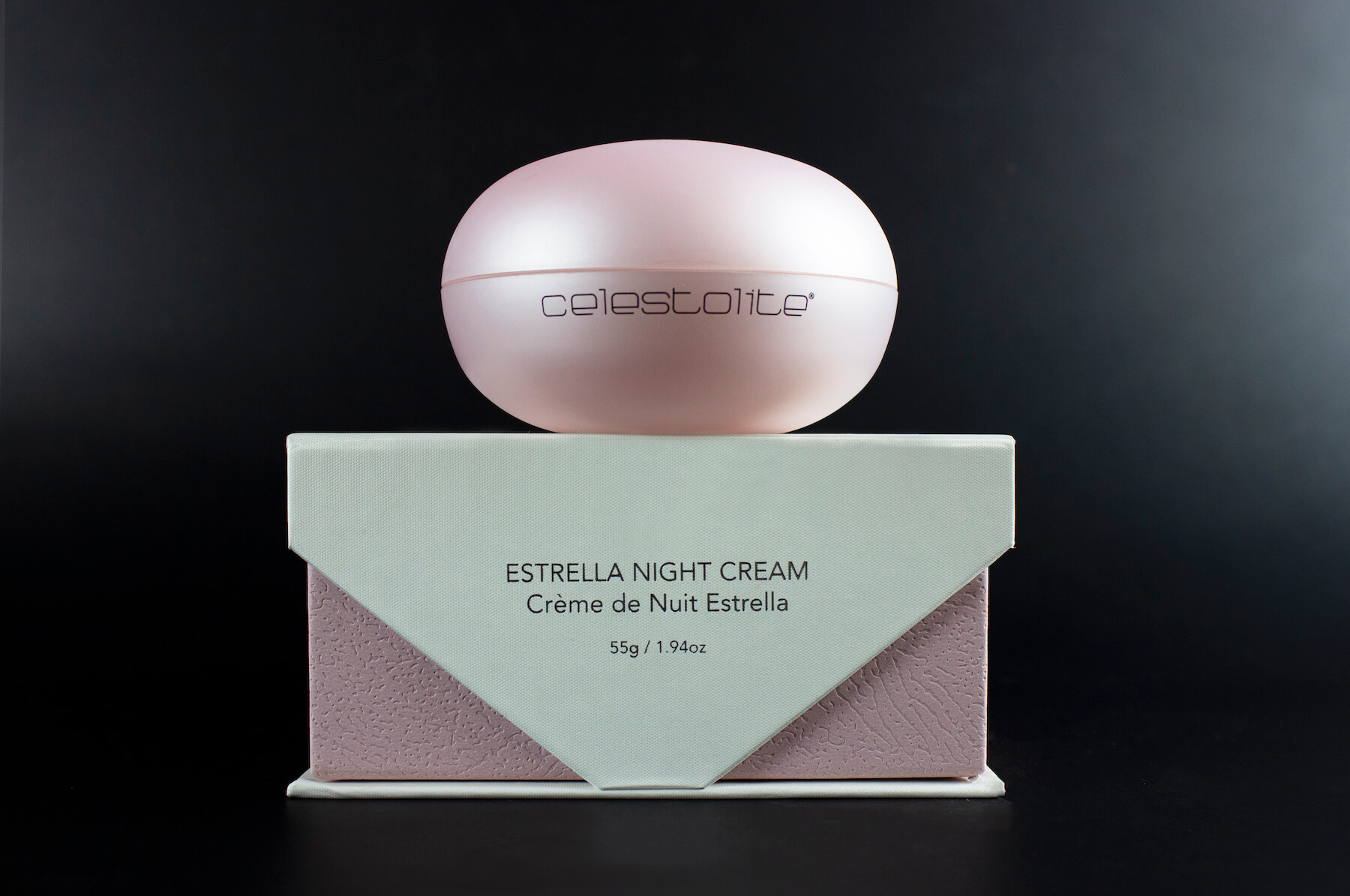
We’ve just talked about preventing dehydration in sensitive skin, but dryness is a big concern too. While dehydration refers to a lack of water, dryness indicates a lack of sebum, the natural oil that coats and conditions your skin’s surface. Sebum forms an integral part of the skin barrier, meaning that a damaged barrier often won’t have enough of it. This is why sensitive skin often looks dry, rough, and cracked.
The best way to compensate for this is by keeping your skin moisturized. A good moisturizer will create its own barrier over your skin’s surface, providing enough lubrication to counter the look of dry and cracking skin. Look for a rich formula that contains plant butters, such as the Celestolite Estrella Night Cream, which is infused with shea butter and sunflower seed oil.
Protect Your Skin From UV Rays
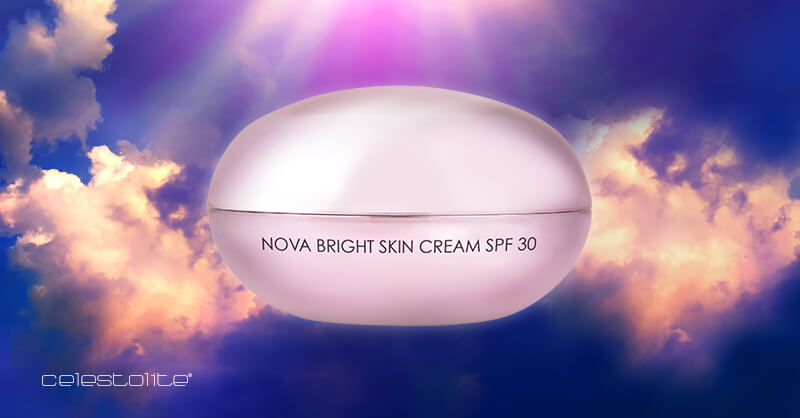
The reactions that your sensitive skin experiences are down to inflammation. This means that the appearance of inflammation needs to be kept to a minimum if you want your complexion to remain calm and balanced.
While there are many factors out there that can trigger inflammation in the skin, the sun is one of the most harmful. Not only does it cause inflammation but it will also dehydrate your skin, damage your skin barrier, and dry out your skin’s surface – everything that you’re trying to avoid!
To prevent this, make sure that your skin is protected at all times, even during the winter months. While SPF 30, such as that in the Nova Bright Skin Cream SPF 30 from Celestolite, may be sufficient for mildly sensitive skin, those with severe sensitivities will likely need a higher SPF rating.
Be Mindful of Pollution
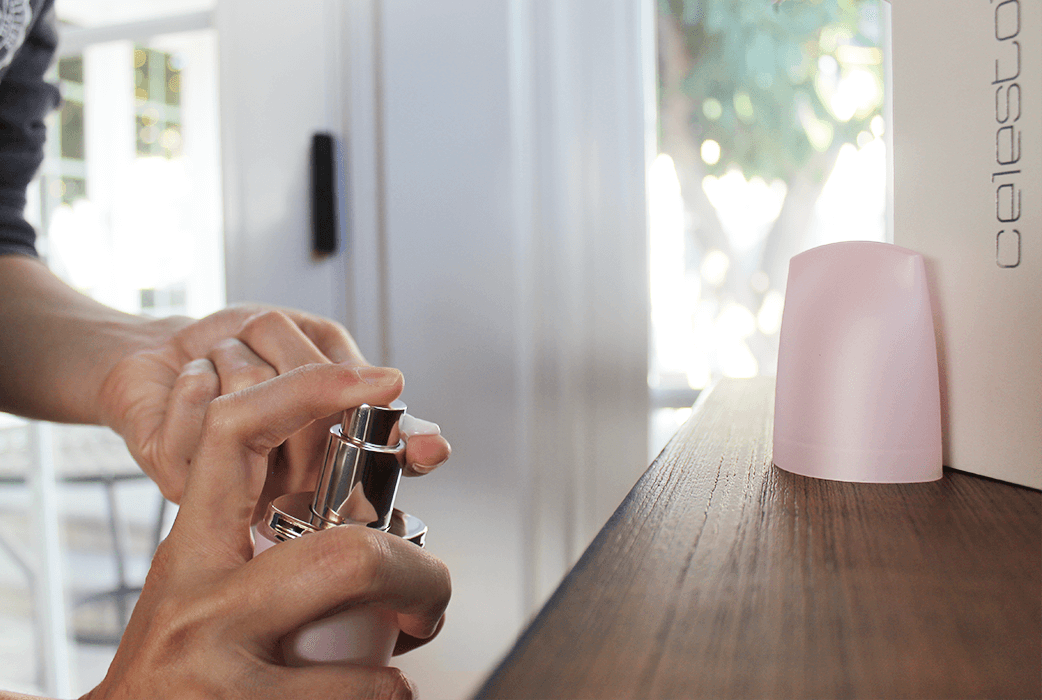
The sun isn’t the only dangerous aspect of the environment that your sensitive skin needs to be wary of. Pollution is a major problem as well. It’s everywhere, inside and outside – there’s no getting away from it.
For people without sensitive skin, pollution is already an issue. For those who do have sensitive skin, it becomes even more so. Since your skin barrier isn’t able to block out irritants and allergens in the same way, those pollutants will wreak havoc on your skin.
How can you prevent pollution from further damaging your sensitive skin? Keeping your skin clean should be your first step, which is why daily cleansing is so vital. However, even then, you won’t be able to fend off all pollution-related damage. The best way to safeguard your complexion is by ensuring that your skincare routine contains plenty of antioxidants, such as those in the Celestolite Estrella Renewing Vitamin C Serum. Antioxidants will counter the appearance of the free radical damage caused by pollution, helping your skin to feel healthier and happier.
Cool Down
One way to quickly calm the feeling of inflammation in sensitive skin is by cooling it down. Many use a cold compress for this. Holding this over inflamed areas of skin for a few minutes will soon leave the skin feeling soothed and relaxed.
Another way to go about this would be to store your skincare products in a fridge. Whether you use the fridge in your kitchen or purchase a dedicated beauty fridge, the cold temperatures will calm and refresh your complexion each time you apply that product.
Don’t Let Your Skin Come Into Contact With Hot Water
With cooling your skin down being such a great way to keep it feeling soothed, it goes without saying that heating your skin up will have the opposite effect. Unfortunately, many with sensitive skin use hot water when cleansing or showering, which only makes those sensitivities stronger. Hot water will trigger inflammation while also melting away the sebum that’s holding your skin barrier together.
It may not feel quite as comfortable to use lukewarm water but, in the long run, this will be so much more beneficial for your skin.
Always Patch Test New Products
With sensitive skin reacting so easily to various skincare ingredients, you need to be very cautious whenever you decide to introduce a new product to your skincare routine. The last thing that you want is for your entire face to experience a severe reaction! This is why patch testing is always recommended, even for those without sensitive skin.
Patch testing involves testing out a new product on a small patch of skin on your arm. Once you’ve applied it, you would then need to wait for 24-48 hours to see if your skin reacts. If it does, then this is a sign that the product shouldn’t go anywhere near your face, where the skin is even more delicate.
If no reaction is seen or felt, you should then repeat the patch test on a small part of your face. Again, wait for a day or two, closely examining your skin for reactions. If that area of skin seems happy with the product you’ve applied, then chances are that it will play well with the rest of your face too.
Summary
Sensitive skin can be a challenge to manage, which is why it’s important to understand the reasons behind your sensitivities. With the guide that we’ve shared above, this becomes easy. Follow our tips and your sensitive skin will be easier to deal with than ever, giving you a calm and relaxed complexion that you can once again be proud of!
Click here to check out more of Celestolite’s bestselling skincare products.



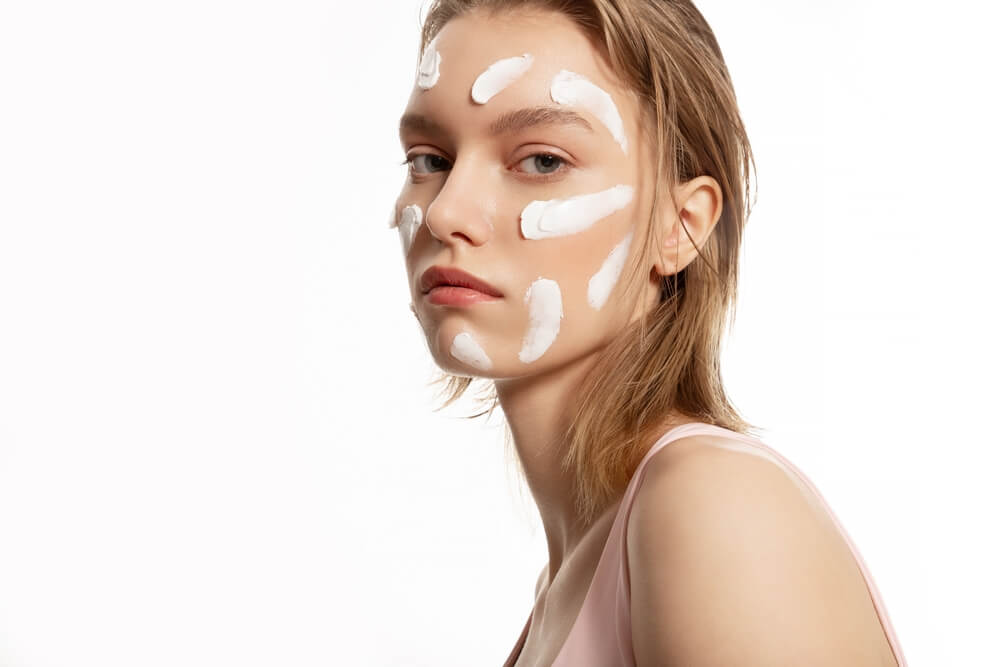
0 comments on “Understanding and Managing Sensitive Skin: A Comprehensive Guide”